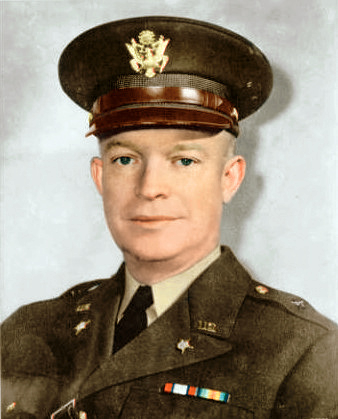Gen. Dwight Eisenhower’s announcement to the people of Metropolitan France
July 10, 1943
Anglo-Canadian Armed Forces have today launched an offensive against Sicily. It is the first stage in the liberation of the European continent. There will be others.
I call on the French people to remain calm, not to allow themselves to be deceived by the false rumors which the enemy might circulate. The Allied radio will keep you informed on military developments. I count on your sangfroid and on your sense of discipline. Do not be rash when the enemy is watching. Keep on listening and never heed rumors. Verify carefully the news you receive.
By remaining calm and by not exposing yourselves to reprisals through premature actions, you will be helping us effectively, when the hour of action strikes we will let you know. Till then, help us by following our instructions, that is to say: Keep calm, conserve your strength. We repeat: When the hour of action strikes, we will let you know.
